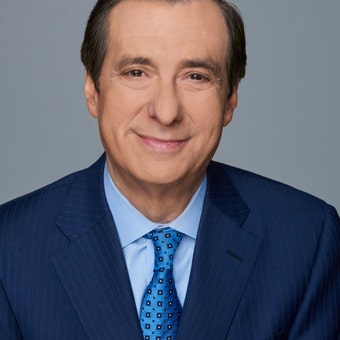AOC wants to end deportation of criminal illegal immigrants
'The Five' weighs in on Democrats calling deportation policies 'racist'
The vice presidency has always been a paradox, a potentially powerful job that nonetheless requires pleasing a constituency of one.
It’s particularly treacherous terrain for Kamala Harris, who faces swirling racial crosscurrents and the baked-in assumption that she’ll run to succeed a 78-year-old president.
And now there are signs that the press is unhappy with her, or at least getting impatient. Why doesn’t she make more news? Why is she so cautious (a word she is said to hate)? Why doesn’t she talk to more reporters??
There is of course enormous interest in Harris because, unlike all her predecessors, she is not a White man. Indeed, she wouldn’t have been picked if she were a White man. That has been a blessing and a burden.
Some familiar with her thinking say Harris views being extremely deferential as part of the job description. They also believe her portfolio will develop, that four months in office is way too early for the press to be making sweeping judgments. In this view, the stories are filling a post-Trump vacuum left by Biden’s duller style and aversion to dominating the news.
Another benefit for Harris is that chief of staff Ron Klain understands the sensitivities of the role, having held that title for Al Gore as well as Vice President Biden.
We didn’t always have this obsession with the veep (nor would the role have warranted a show with Julia Louis-Dreyfus). Who remembers Thomas Marshall (Wilson), Charles Curtis (Hoover) or John Nance Garner (FDR), except for the latter comparing the office to a "warm bucket of spit"? (The quote was cleaned up.)
That started to change with the recently deceased Walter Mondale, was dramatically different with Dick Cheney (whose daughter is kinda in the news) and continued when Barack Obama picked Biden. Mike Pence was defined largely by his fierce loyalty to Donald Trump, until Jan. 6.
BIDEN HITS A ROUGH PATCH AS REPUBLICANS TRY TO BLAME HIM FOR EVERYTHING
But there has always been the "heartbeat away" coverage, given the sudden ascension of such number twos as Teddy Roosevelt, Harry Truman, LBJ and Jerry Ford.
Like her predecessors, Harris can’t say the quiet part out loud, that she is indeed eyeing a possible 2024 run, depending on where the chips fall. Biden was in the same situation as he weighed a 2016 campaign, as were Gore and George H.W. Bush.
President Biden would undoubtedly lose confidence in Harris if he felt she was openly pursuing a separate political agenda. And he knows the pitfalls since he sometimes created distractions for Obama, such as getting out ahead of him on gay marriage.
In The Atlantic, Harris critics are described as unsatisfied with her "mostly bland statements. … By aiming to be involved in everything, she’s having a hard time making her mark on anything."
As for the media, "the vice president and her team tend to dismiss reporters. Trying to get her to take a few questions after events is treated as an act of impish aggression. And Harris herself tracks political players and reporters whom she thinks don’t fully understand her or appreciate her life experience. … At times, she comes off as so uninteresting that television producers have started to wonder whether spending thousands of dollars to send people on trips with her is worthwhile, given how little usable material they get out of it."
That’s got to sting. Harris (and her boss) should do more interviews. But for the former U.S. senator from California to make "news," she would either have to use more incendiary language than Biden or show some daylight between their positions.
She has resisted (as Biden did) being in charge of a single issue, especially the border mess, which is undoubtedly a political loser. No wonder she is focused on the "root causes" rather than providing the images of an actual trip there.
And then there is the dual heritage of Harris having an Indian mother and a Jamaican father. Politico reports that "Harris faces criticism that she hasn’t struck the right balance, that she’s focused more often on being the United States’ first black vice president than the first Asian American one. Harris understands the critique."
This is a classic no-win situation for Harris, who will address an Asian-American Pacific Islander event Thursday. As Politico notes, she grew up in Oakland surrounded by Black neighbors and friends. She identifies as both, "but Americans often see in her what they want to see."
SUBSCRIBE TO HOWIE'S MEDIA BUZZMETER PODCAST, A RIFF OF THE DAY'S HOTTEST STORIES
In raw political terms, Harris can’t win the Democratic nomination without strong Black support. In fact, the lack of such support doomed her 2020 presidential campaign. Asian-Americans are an important, but much smaller, minority.
While the press has anointed Harris as the instant front-runner if Biden retires, that may be simplistic. Those sympathetic to her say she’d face a crowded primary in which the VP could be saddled with the president’s more pragmatic compromises, at odds with her more liberal leanings. And of course, she would struggle if the administration is unpopular.
All that helps explain why Kamala Harris is treading lightly, even if that displeases the pundits.

